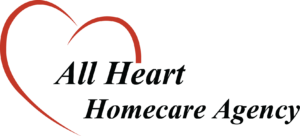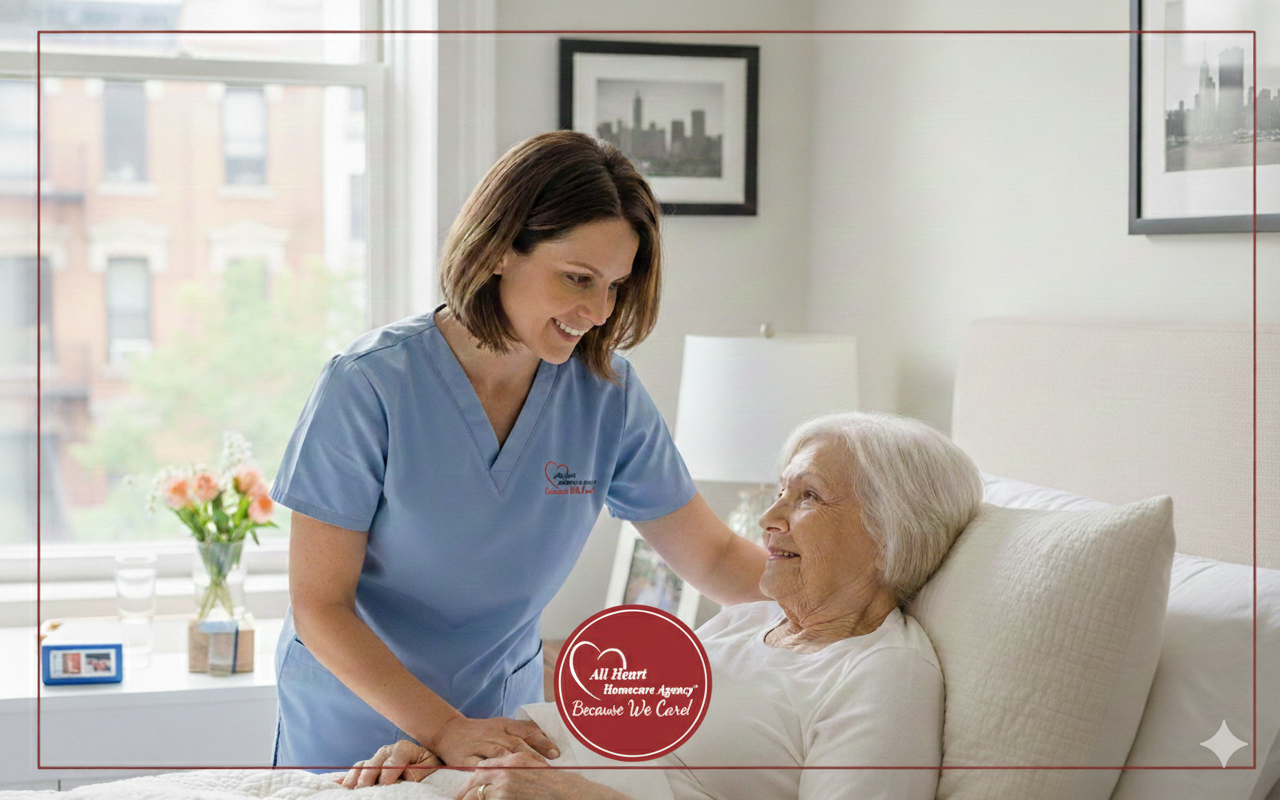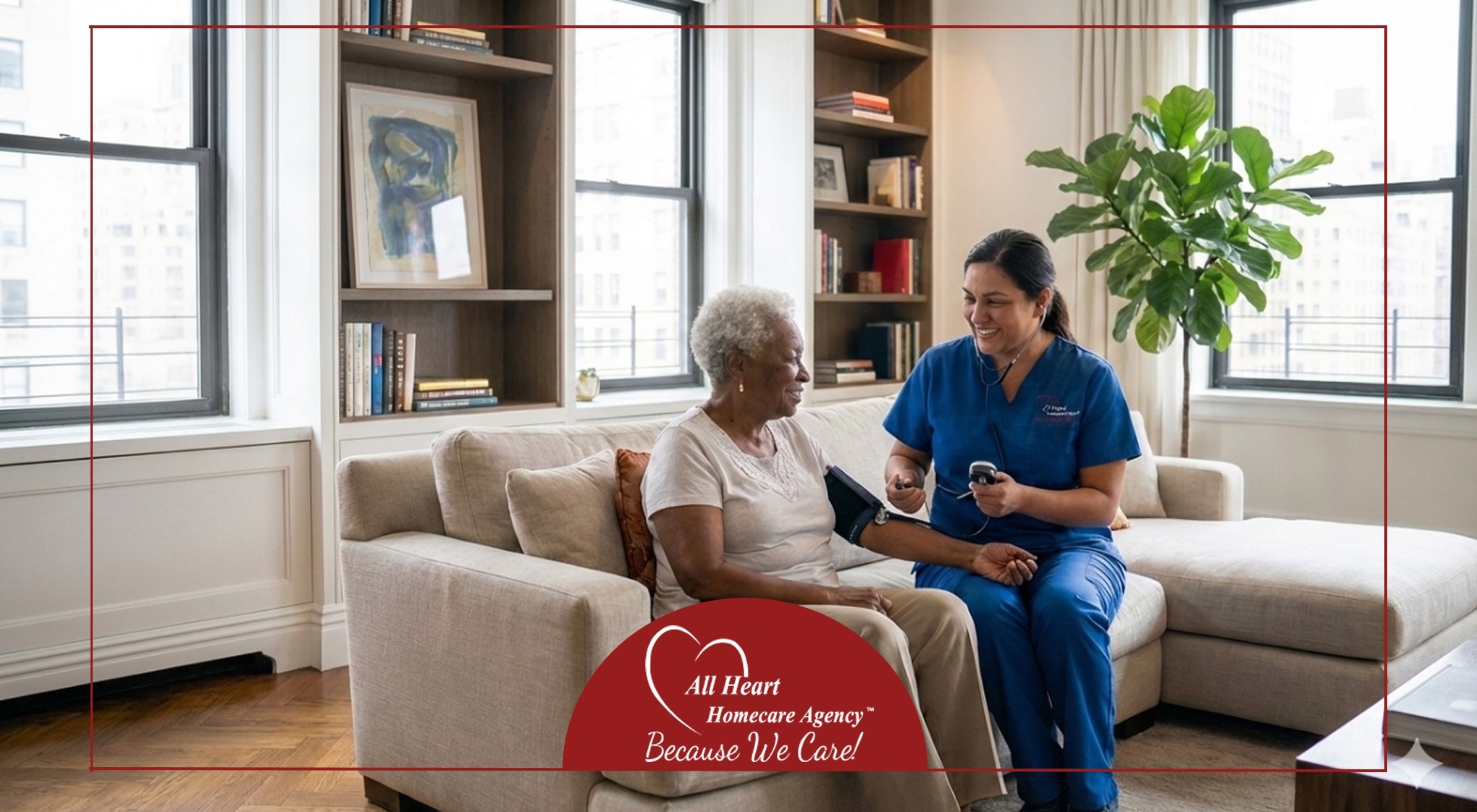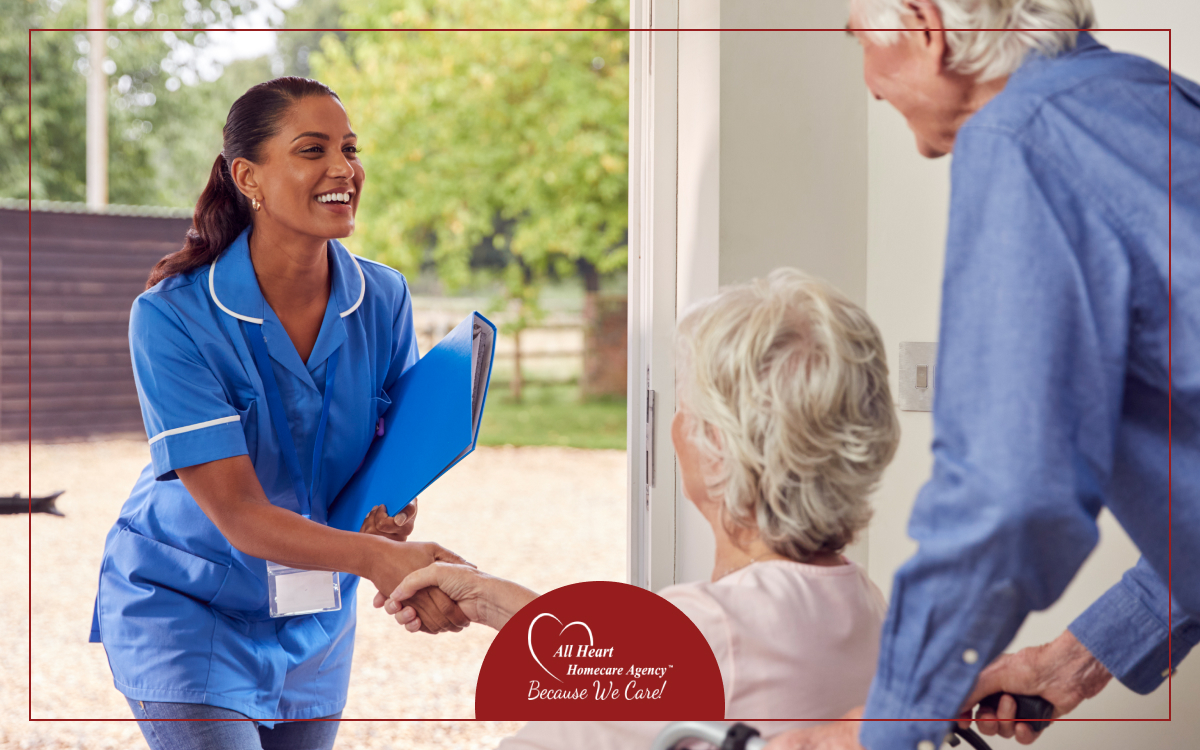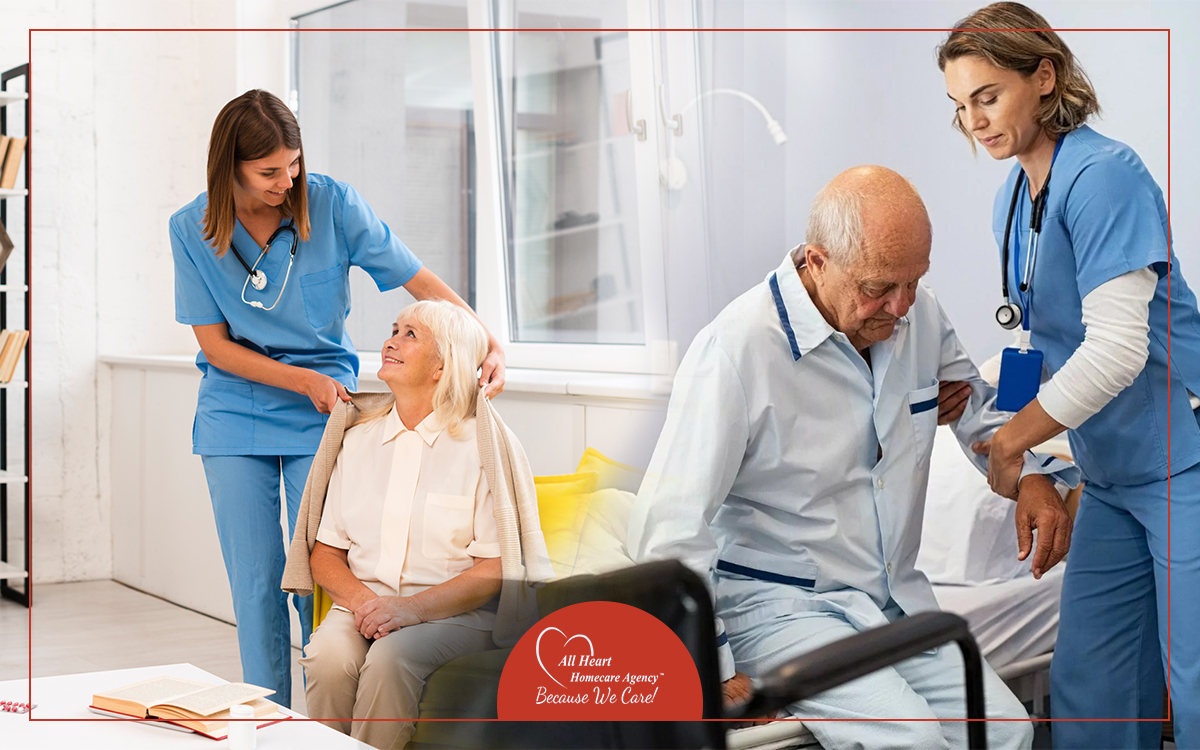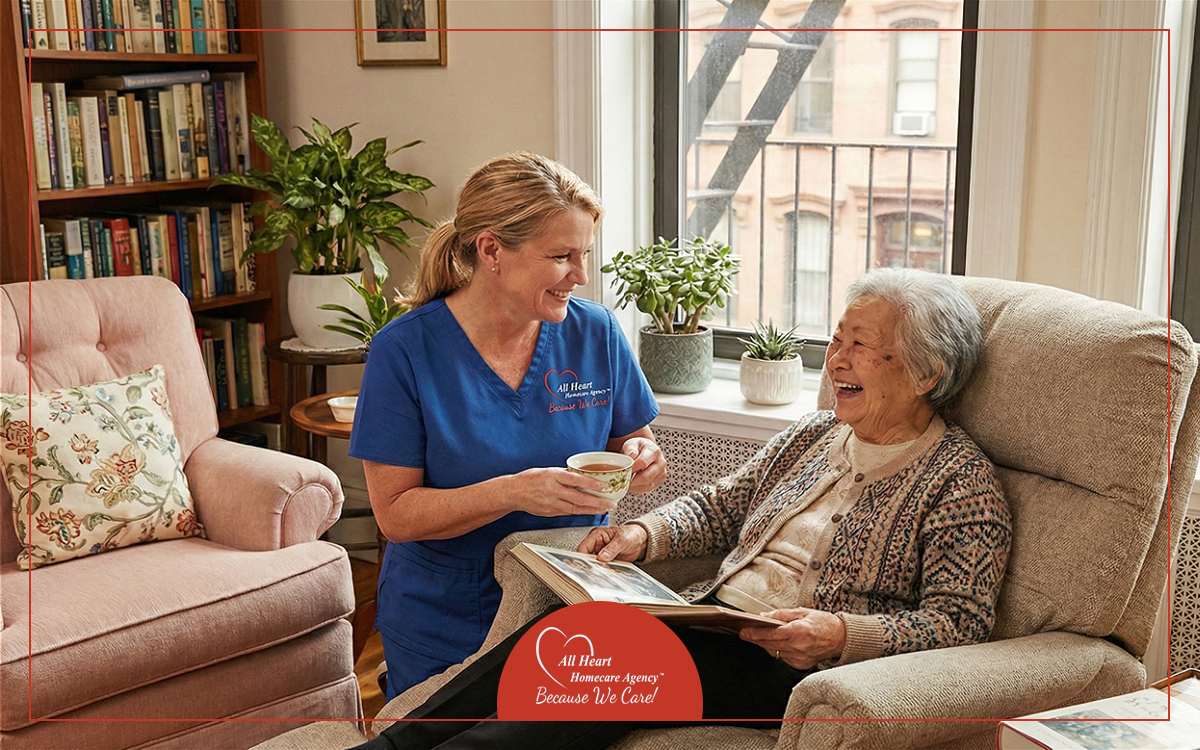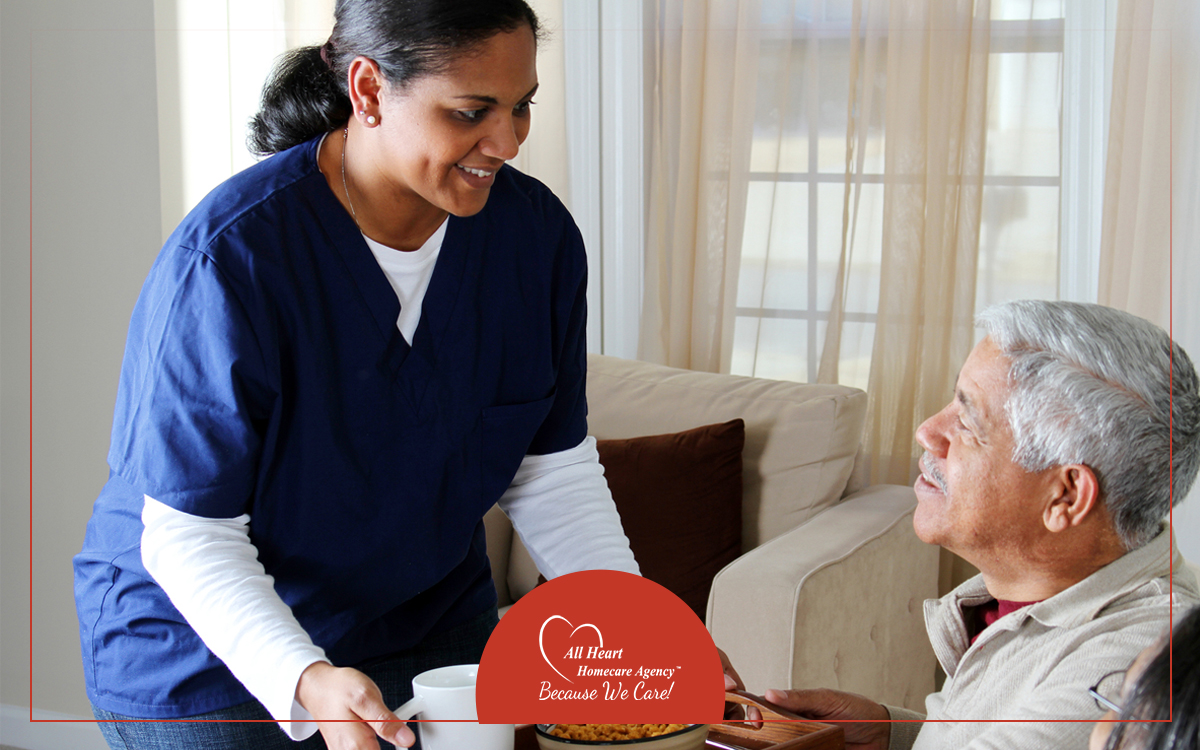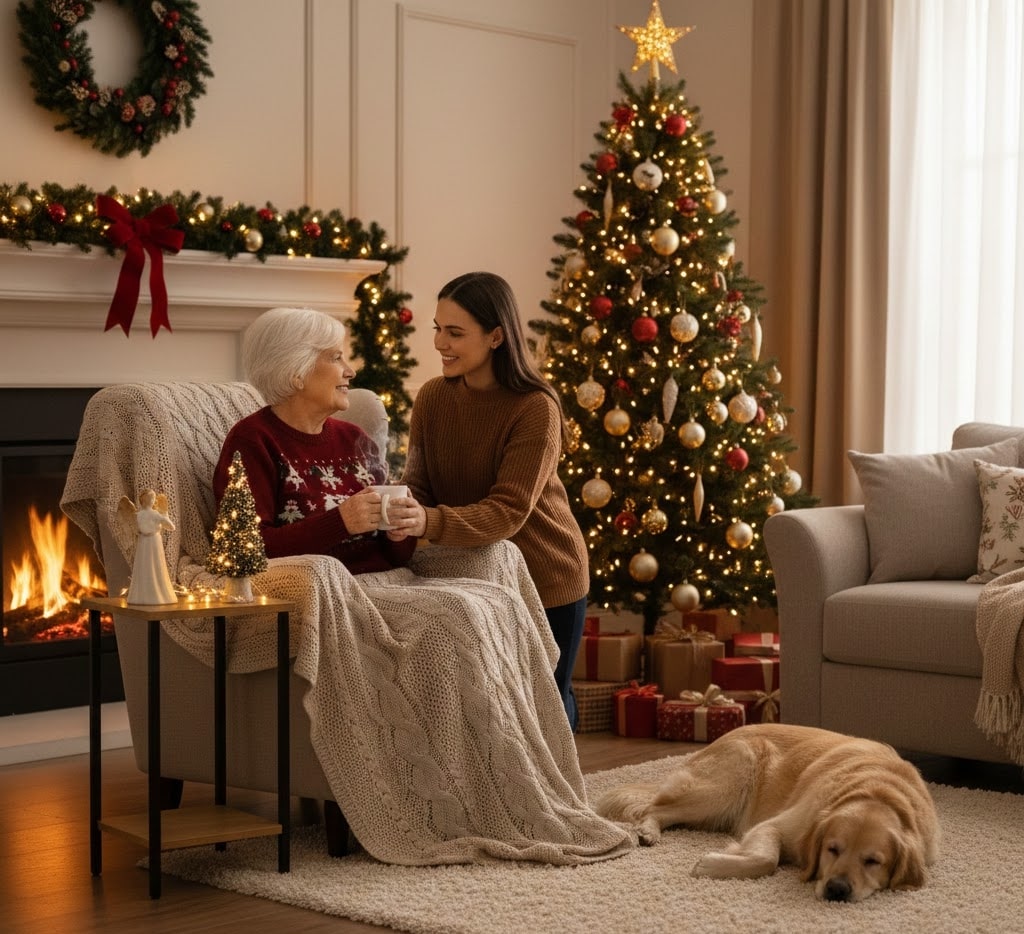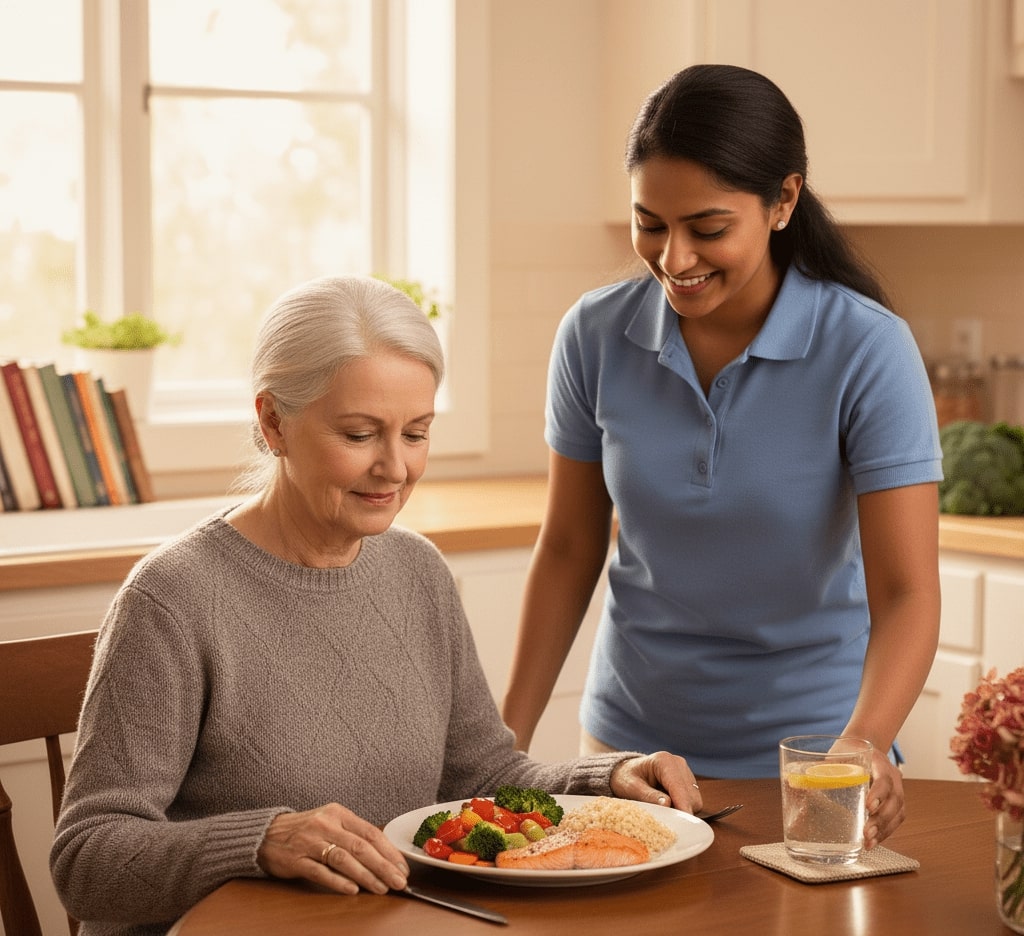How do you take care of an elderly person at home safely and effectively?
Taking care of an elderly person at home starts with understanding their daily needs and building a routine that supports both safety and dignity. This usually means helping with personal care, meals, medications, and mobility, while also paying attention to emotional well-being and social connection. Many families begin by handling care themselves, then gradually bring in professional support as needs grow. The goal isn’t to do everything perfectly, but to create a stable, supportive environment where your loved one can stay comfortable, safe, and as independent as possible.
Caring for elderly family members at home is an act of love and respect, though it comes with challenges and adjustments for everyone. It’s important to approach this responsibility with compassion, ensuring your loved one’s needs are met in a supportive environment. A tailored care plan addressing daily tasks, medication, and mobility can make a big difference. Seeking professional guidance, joining support networks, and maintaining open family communication can help achieve balance and support the well-being of both the caregiver and the elderly family member.
At All Heart Homecare, we understand that every family’s journey with elderly care is unique. Whether you’re learning how to take care of elderly parents at home for the first time or seeking guidance on how to take care of bedbound elderly at home, this comprehensive guide provides the essential knowledge and practical strategies you need to provide compassionate, effective care.
The decision to care for elderly family members at home often stems from a desire to maintain their dignity, independence, and connection to cherished memories within their own environment. However, this choice comes with significant responsibilities that require careful planning, ongoing education, and professional assistance to execute successfully.
Understanding the Basics: How to Take Care of the Elderly at Home
When families first consider how to take care of an elderly person at home, the scope of responsibilities can feel overwhelming. Successful elderly care at home begins with a thorough assessment of your loved one’s current needs, capabilities, and preferences. This assessment should encompass physical health status, cognitive function, mobility limitations, medication requirements, and social and emotional needs.
Creating a safe and comfortable environment forms the foundation of quality elderly care. This involves more than simply ensuring physical safety; it requires maintaining an atmosphere that preserves dignity, promotes independence where possible, and provides appropriate assistance when needed. The goal is to enhance quality of life while managing health conditions and preventing complications that could lead to hospitalization or injury.
Understanding when to seek professional help is crucial for families learning how to take care of elderly people at home. While family caregivers can provide tremendous love and support, certain medical conditions, mobility limitations, or care requirements may necessitate professional intervention to ensure safety and optimal health outcomes.
Essential Preparations for Elderly Care at Home
Home Safety Assessment and Modifications
Creating a safe environment is paramount when learning how to take care of the elderly at home. A comprehensive home safety assessment should evaluate every area where your elderly family member spends time, identifying potential hazards and implementing appropriate modifications.
Fall prevention represents the most critical safety consideration for elderly individuals living at home. Falls are the leading cause of injury-related death among seniors, making prevention strategies essential for successful home care. Remove or secure loose rugs, ensure adequate lighting throughout the home, install grab bars in bathrooms, and consider stair railings or ramps where needed.
Bathroom modifications often require the most attention, as this area presents multiple fall and injury risks. Install grab bars near toilets and in shower areas, consider shower chairs or benches for bathing safety, ensure non-slip surfaces in tubs and showers, and evaluate whether raised toilet seats would improve accessibility and safety.
Kitchen safety modifications should focus on preventing burns, cuts, and falls while maintaining as much independence as possible. Organize frequently used items within easy reach, ensure good lighting over work areas, consider automatic shut-off devices for stoves, and remove or secure sharp objects that could cause injury.
| Room | Safety Modifications | Priority Level |
|---|---|---|
| Bathroom | Grab bars, non-slip surfaces, shower chair | High |
| Kitchen | Good lighting, accessible storage, automatic shut-offs | High |
| Bedroom | Clear pathways, appropriate bed height, emergency call system | Medium |
| Living Areas | Remove trip hazards, secure furniture, adequate lighting | Medium |
| Stairs | Handrails, good lighting, non-slip treads | High |
| Entrances | Ramps if needed, good lighting, secure locks | Medium |
Medical Care Management
Effective medical care management is essential when learning how to take care of an elderly parent at home. This involves organizing medications, monitoring health conditions, coordinating with healthcare providers, and recognizing when medical intervention is necessary.
Medication management requires systematic organization to prevent errors, missed doses, or dangerous interactions. Use pill organizers with clearly marked days and times, maintain an updated medication list including dosages and prescribing physicians, set reminders for medication times, and regularly review medications with healthcare providers to ensure continued appropriateness.
Regular health monitoring helps detect changes in condition before they become serious problems. This includes tracking vital signs when appropriate, monitoring weight changes, observing for new symptoms or changes in existing conditions, and maintaining communication with healthcare providers about any concerns or changes in status.
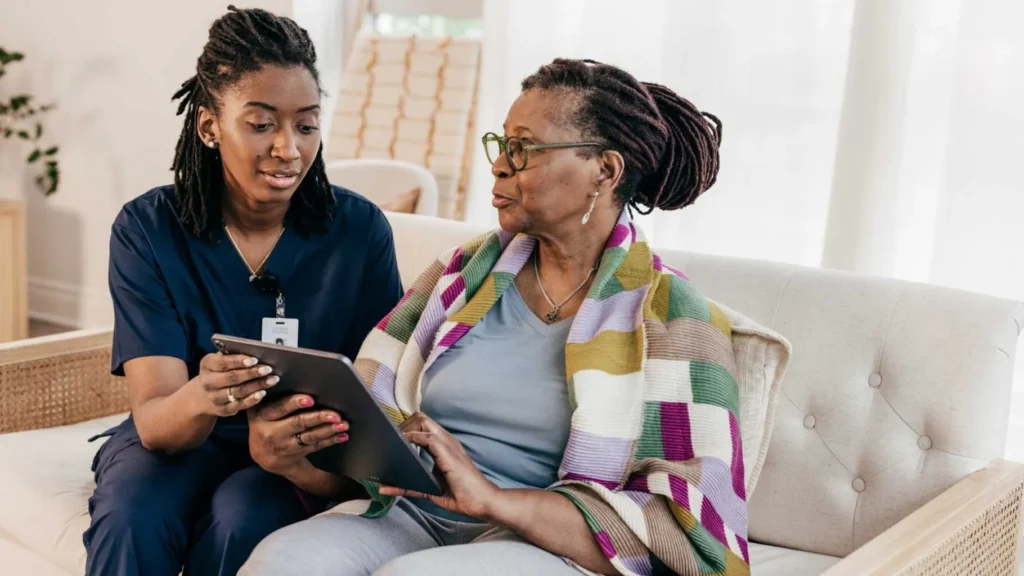
How to Take Care of Bedbound Elderly at Home
Caring for bedbound elderly family members presents unique challenges that require specialized knowledge and equipment. How to take care of bedbound elderly at home involves understanding proper positioning, preventing complications, managing hygiene needs, and maintaining quality of life despite mobility limitations.
Physical Care Requirements
Proper positioning and regular turning schedules are crucial for preventing pressure sores and maintaining circulation. Bedbound individuals should be repositioned every two hours during waking hours, with careful attention to pressure points such as heels, elbows, and the tailbone area. Use appropriate cushions and positioning aids to maintain comfort and prevent skin breakdown.
Skin care is vital for the well-being of bedbound elderly individuals. Daily inspections are crucial to identify any signs of pressure sores, redness, or skin breakdown early on. Keeping the skin clean and dry helps reduce the risk of infections, while using gentle, hydrating moisturizers can prevent dryness and cracking. Additionally, ensuring bedding is always clean, smooth, and wrinkle-free is essential to avoid unnecessary skin irritation. These steps, when taken consistently, can offer both comfort and protection, supporting the individual’s overall health with care and dignity.
Hygiene and bathing assistance require sensitivity and proper technique to maintain dignity while ensuring cleanliness. Bed baths may be necessary when traditional bathing is not possible, requiring warm water, gentle cleansers, and careful attention to all body areas while preserving privacy and comfort.
Nutrition and hydration management for bedbound elderly individuals requires attention to positioning during meals, ensuring adequate fluid intake throughout the day, monitoring for swallowing difficulties, and providing nutritionally appropriate foods that are easy to consume safely.
Medical Equipment and Supplies
Hospital beds offer essential positioning capabilities and safety features for the care of elderly individuals who are bedbound. These beds allow for head and foot elevation, making breathing easier and reducing the risk of aspiration during meals or when administering medication. Side rails provide safety and support for position changes.
Mobility assistance devices, such as transfer boards, mechanical lifts, or gait belts, help safely move bedbound individuals when necessary, while protecting both the elderly person and caregivers from injury during transfers.
Medical monitoring equipment may include blood pressure monitors, pulse oximeters, or glucose meters, depending on specific health conditions. Having appropriate monitoring equipment available enables regular health assessments and early detection of potential problems.
| Equipment Type | Purpose | Considerations |
|---|---|---|
| Hospital Bed | Positioning, safety, comfort | Electric vs manual, size requirements |
| Pressure Relief Mattress | Prevent pressure sores | Alternating pressure vs foam |
| Transfer Equipment | Safe movement | Weight capacity, caregiver training needed |
| Monitoring Devices | Health tracking | Specific to medical conditions |
| Hygiene Supplies | Cleanliness, comfort | Waterproof pads, gentle cleansers |
| Emergency Equipment | Safety, quick response | Call systems, emergency contacts |
Daily Care Routines for Elderly Parents at Home
Establishing consistent daily care routines helps ensure all necessary care tasks are completed while providing structure and predictability for elderly family members. How to take care of elderly parents at home effectively requires balancing assistance with independence, maintaining dignity while providing necessary support.
Personal Care Assistance
Personal care assistance is a vital aspect of supporting the well-being of elderly individuals, encompassing tasks such as bathing, grooming, dressing, and toileting. The level of support needed depends greatly on the individual’s health, mobility, and personal circumstances.
Bathing assistance must always prioritize safety, dignity, and comfort. Begin by ensuring the bathroom is warmed to a comfortable temperature and that all necessary supplies—such as soap, washcloths, and towels—are within easy reach. Respect the individual’s privacy by allowing as much independence as they can manage while providing supervision or physical support to prevent falls or accidents. It’s important to approach this task with compassion, reassuring the individual throughout the process to foster a sense of comfort and trust.
When assisting with dressing, it’s crucial to consider both practicality and the individual’s preferences. Choose clothing appropriate for the weather and planned activities, while ensuring garments fit well and feel comfortable. Help with items like buttons or zippers that may be difficult to manage independently, providing encouragement along the way. Always strive to respect the person’s personal style to uphold their sense of identity.
Toileting support requires a sensitive, respectful approach that protects both privacy and safety. Assistance may include guiding the individual to the bathroom, managing their clothing, and helping maintain hygiene afterward. For those who need incontinence support, creating a routine for scheduled bathroom visits can enhance comfort and reduce anxiety. Always maintain a positive, nonjudgmental attitude to help the person feel at ease during this deeply personal process.
Each of these tasks allows caregivers to promote independence wherever possible while building trust and ensuring the individual feels cared for with understanding and dignity.
Nutritional Care
Proper nutrition plays a crucial role in maintaining health and preventing complications in elderly individuals. Meal planning should consider dietary restrictions, medication interactions, swallowing abilities, and personal preferences while ensuring adequate nutrition and hydration.
Managing dietary restrictions requires understanding specific limitations related to medical conditions such as diabetes, heart disease, or kidney problems. Work with healthcare providers or nutritionists to create personalized meal plans that meet medical needs while remaining enjoyable and satisfying.
Ensuring proper hydration becomes increasingly important as people age, as the sensation of thirst may diminish, and certain medications can increase the risk of dehydration. Encourage regular fluid intake throughout the day, monitor for signs of dehydration, and consider the fluid content of foods as part of an overall hydration strategy.
Managing Common Health Challenges
Elderly individuals often face multiple health challenges that require ongoing management and monitoring. Understanding how to address common conditions helps families provide appropriate care while recognizing when professional medical intervention is necessary.
Chronic Conditions
Managing diabetes at home demands a thoughtful and proactive approach to ensure safety, health, and well-being. Regular blood sugar monitoring serves as the foundation of effective management, helping to maintain stability and prevent complications. Equally important is adhering to prescribed medication schedules and fostering healthy dietary habits that align with individual needs. Recognizing the signs and symptoms of both high and low blood sugar is vital, as timely action can prevent emergencies. Keep essential supplies on hand for quick responses, and communicate clearly with caregivers to ensure they are confident in identifying and addressing emergencies.
Heart disease care involves medication management, monitoring activity levels, adhering to dietary restrictions, and recognizing cardiac symptoms that require immediate medical attention. Understanding prescribed medications, monitoring for side effects, and maintaining regular communication with healthcare providers are essential components of cardiac care at home.
Arthritis and mobility challenges require balancing activity with rest. Managing pain and protecting joint function are key to maintaining mobility and quality of life. Tailored physical therapy can strengthen muscles and improve flexibility, while pain management helps ease discomfort. Adapting the home with assistive devices or modifications ensures safety and accessibility. With a proactive approach, it’s possible to maintain comfort, independence, and functionality despite arthritis and mobility issues.
Dementia and Alzheimer’s care present unique challenges requiring specialized approaches to communication, behavior management, and daily care routines. Our approach begins with creating safe, structured environments that promote a sense of stability and familiarity while nurturing dignity and independence. Effective communication techniques, combined with compassionate caregiving, are crucial for fostering trust and minimizing confusion and anxiety. These personalized strategies, tailored to the individual’s specific needs, ensure not only their safety but also their comfort and overall quality of life. If you want more information on how to take care of Alzheimer´s or Dementia patients, contact us today or click here.
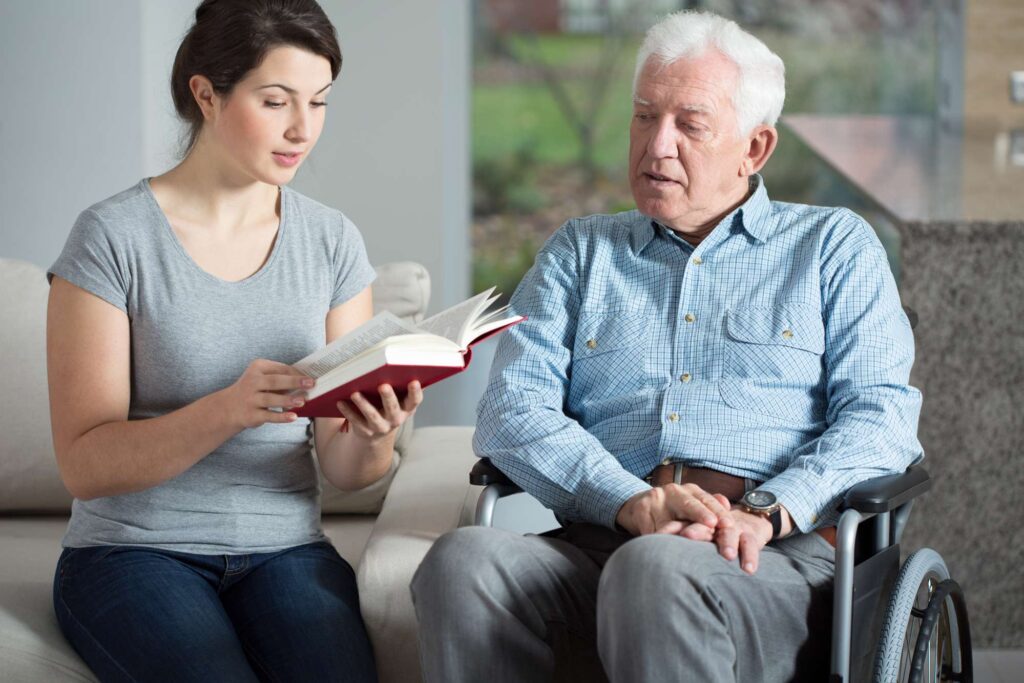
Frequently Asked Questions
How do I know if my elderly parent needs help at home?
Signs that elderly parents may need assistance include difficulty with personal care tasks, medication management problems, frequent falls or near-falls, changes in eating habits or weight loss, social isolation, confusion or memory problems, and inability to maintain household tasks safely.
What are the most important safety modifications for elderly care?
The most critical safety modifications include installing grab bars in bathrooms, improving lighting throughout the home, removing trip hazards such as loose rugs, ensuring stair safety with handrails and good lighting, and installing emergency call systems for quick access to help when needed.
How can I manage caring for a bedbound elderly person?
Caring for bedbound elderly individuals requires proper positioning equipment, regular turning schedules, skin care protocols, appropriate hygiene assistance, nutritional support, and often professional medical equipment. Consider professional home health services for complex medical needs.
What should I do if my elderly parent refuses help?
When elderly parents refuse help, approach the situation with patience and understanding. Start with small changes, involve them in decision-making, explain safety concerns clearly, consider professional assessment to validate needs, and sometimes enlist help from trusted friends, family members, or healthcare providers.
How much does it cost to care for the elderly at home?
Home care costs vary significantly based on the level of care needed, geographic location, and whether family provides care or professional services are used. Professional home care services typically range from $20-30 per hour, while family caregiving involves indirect costs such as lost income and home modifications. If you want to know more, contact us today, click here, and one of our specialists will help you with your tailored plan.
When should I consider professional home care services?
Consider professional home care when family caregivers become overwhelmed, medical needs exceed family capabilities, safety concerns arise, elderly individuals require specialized care, or when maintaining employment while providing care becomes impossible.
How All Heart Homecare Can Support Your Family
At All Heart Homecare, we recognize that learning how to care for the elderly at home can be overwhelming, particularly when balancing work, family, and caregiving responsibilities. Our comprehensive home care services are designed to support families while ensuring elderly loved ones receive the highest quality care in the comfort of their own homes.
Our qualified and compassionate caregivers are trained in all aspects of elderly care, from basic personal assistance to complex medical support. We work closely with families to develop customized care plans that address specific needs while respecting personal preferences and maintaining dignity.
Our services include personal care assistance, meal preparation, light housekeeping, companionship, transportation to appointments, 24/7 emergency support, among others. We also provide specialized care for individuals with dementia, Alzheimer’s disease, and other chronic conditions requiring expert attention.
Next Steps
Learning how to take care of the elderly at home is a journey that requires patience, preparation, and ongoing support. While the responsibility can feel overwhelming at times, the opportunity to provide loving care for elderly family members in familiar surroundings is deeply meaningful and often the preferred choice for both elderly individuals and their families.
Remember that seeking help is not a sign of failure but rather a proactive step towards ensuring the best possible care for your loved ones. By reaching out for support, you are prioritizing their well-being and your own. Whether it’s exploring home modifications for improved safety, finding assistance with daily care routines, or connecting with professional care services, there are numerous resources designed to help. Caring for others is a profound responsibility, but it’s equally important to maintain your own health and balance.
If you’re considering how to best care for elderly family members at home, we encourage you to contact All Heart Homecare for a complimentary consultation. Our experienced care coordinators can assess your specific situation, provide guidance on care options, and help you develop a plan that ensures safety, comfort, and quality of life for your elderly loved ones.
Ready to get started? Contact All Heart Homecare today at 718-306-6549 or visit our website to schedule your free consultation. Let us help you provide the compassionate, professional care your family deserves.

